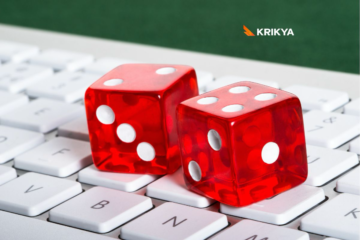Belief systems play a significant role in shaping human behavior and perceptions. Psychology provides a lens through which we can understand the cognitive, emotional, and social underpinnings of these beliefs. This article delves into the psychology of luck in gaming, comparing it with religious faith, and explores the implications and applications of these insights.
The Psychology of Luck in Gaming
The Role of Luck and Superstition in Gaming Across Cultures
Across cultures, luck and superstition are key to gaming and gambling. Ancient civilizations played games of chance. They linked outcomes to deities or spirits. Today, gamblers worldwide follow rituals and superstitions. They wear “lucky” clothes or use specific charms to influence outcomes. These behaviors stem from a psychological need. People seek to find patterns and control uncertain events.
Evolution of Gambling and Gaming as Leisure Activities
Gambling and gaming have evolved significantly. They started as simple pastimes and have become complex leisure activities. These activities have a big cultural and economic impact. Casinos, lotteries, and online gaming platforms have spread widely. They offer many chances for people to play games of chance. This evolution comes with a growing interest. People want to understand the psychological factors that drive these behaviors.
Cognitive Aspects of Gambling and Gaming Beliefs
At the core of gambling and gaming beliefs are cognitive processes that influence how random events are perceived. The human brain is wired to detect patterns, even in random sequences, leading to the gambler’s fallacy—the erroneous belief that past events influence future outcomes. This cognitive bias makes individuals believe that they can predict or control luck-based events. For example, in casinos for play Crazy Time, players often develop beliefs about patterns and outcomes based on previous spins.
How Random Events Are Perceived as Patterns or Signs
Gamblers often perceive random events as patterns or signs, a phenomenon known as apophenia. For example, a series of losses might be interpreted as a sign that a win is imminent. This perception is reinforced by cognitive biases such as the illusion of control, where individuals believe they can influence outcomes through their actions or rituals.
Emotional and Social Factors
Gambling and gaming have transformed over time. Originally simple pastimes, they have grown into complex leisure activities with significant cultural and economic impacts. Casinos, lotteries, and online gaming platforms are now widespread. There is an increasing interest in understanding the psychological factors that drive gambling and gaming behaviors.
The Impact of Wins and Losses on Emotional States and Future Behavior
Wins and losses significantly impact emotional states and future behavior. Wins tend to boost confidence and encourage further gambling. Losses can lead to increased risk-taking as individuals try to recoup their losses. This cycle can result in problematic gambling behaviors.
Superstitious Rituals and Habits of Gamers and Gamblers
Gamers and gamblers often develop superstitious rituals and habits, such as blowing on dice or avoiding certain numbers. These behaviors are believed to influence outcomes, despite having no real effect. The repetition of these rituals can create a sense of control and reduce anxiety, making them psychologically rewarding even if they are logically unfounded.
The Influence of These Behaviors on Gaming Outcomes
While superstitious rituals do not directly affect gaming outcomes, they can influence behavior. Believing in the efficacy of rituals can increase confidence and reduce stress, potentially improving performance in skill-based games. However, in games of pure chance, these rituals have no impact on the actual outcomes but can perpetuate the illusion of control.
Comparison and Contrast
Common Psychological Mechanisms
Religious faith and beliefs in luck involve similar psychological mechanisms. These include cognitive biases and emotional responses. In both areas, individuals try to understand uncertainty. They aim to control their environment. Social reinforcement is also key. Communities and peer groups validate and support these beliefs.
Similarities in Cognitive Biases and Emotional Responses
Cognitive biases like the illusion of control and confirmation bias are prevalent in both religious faith and gambling beliefs. Emotional responses, such as the comfort derived from religious rituals or the excitement of gaming, further reinforce these beliefs. The need for certainty and control in an unpredictable world drives individuals to maintain these belief systems.
Differences in Belief Systems
Faith in religious contexts is typically a structured belief system with established doctrines and practices, often validated by religious authorities. In contrast, beliefs in luck are more fluid and individualized, lacking formal structure and external validation. While religious faith provides a comprehensive worldview, beliefs in luck are situational and context-specific.
The Influence of External Validation
External validation plays a significant role in sustaining belief systems. Religious faith is often reinforced by religious leaders, texts, and community practices. In gaming, validation comes from personal experiences and social interactions, such as witnessing others’ wins or hearing success stories. This external reinforcement helps maintain and perpetuate these beliefs.
Implications and Applications
Understanding Human Behavior
Studying the psychology of belief in religious and gaming contexts offers insights into human behavior. Recognizing cognitive and emotional factors helps address irrational behaviors and improve decision-making. It also shows how social influences shape beliefs.
The Importance of Recognizing and Addressing Cognitive Biases
Identifying and addressing cognitive biases aids in making informed decisions. This is crucial in gambling, where biases can lead to problematic behaviors. Education and awareness programs can help people recognize and counter these biases.
Practical Applications
The psychology of belief has practical uses in various fields. Mental health professionals can use this knowledge to help those struggling with gambling addiction or irrational beliefs. Marketers can design strategies that appeal to cognitive and emotional needs.
Implications for Mental Health Professionals
Mental health professionals use insights from the psychology of belief to support individuals with belief-related issues. Cognitive-behavioral therapy helps challenge irrational beliefs, promoting healthier behaviors and mental well-being.
Applications in Fields Such as Marketing, Addiction Treatment, and Community Building
In marketing, understanding psychological mechanisms tailors strategies to consumers’ needs. In addiction treatment, acknowledging cognitive biases and emotional responses can improve interventions. Community-building efforts benefit from understanding social reinforcement.
Important Note: This article is for informational purposes only and does not endorse or promote casino or any other form of gambling. Please be aware of the risks involved before participating in any gambling activity.


